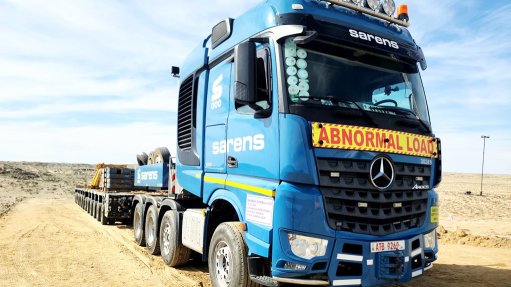A weighty crisis
An epidemic of gigantic proportions is sweeping through Africa, and some experts say it is more devastating than HIV/Aids. It is good old obesity, and that it is shaping up as a major crisis is rather counterintuitive, given Africa’s frequent portrayal by the world’s media as a hungry and starving continent.
Those in the know, including experts from bodies like the World Health Organisation (WHO), tell us that eight of the 20 fastest-rising countries with adult obesity are found in Africa.
At the heart of the problem is the fact that the rising middle class in many African countries seems to prefer processed foods and stuff one gets from a fast-food outlet – which is rich in sugars and fats – to grandma’s recipe of vegetables, legumes, nuts, freshly cut fruit and the like.
The extra weight that results from the combination of a diet of mostly processed foods and a lack of physical exercise may trigger a whole range of noncommunicable diseases, including diabetes, heart ailments, high blood pressure and cancers. According to the Lancet Journal of Diabetes and Endocrinology, the incidence in Africa of Type 2 diabetes – the variant of the condition that is associated with carrying too much weight – increased by a whopping 129% between 1980 and 2018. What’s more, it is projected that sub-Saharan African countries will need about $60-billion by 2030 to treat those suffering from the disease.
Obesity also increases one’s chances of dying from Covid-19. According to the World Obesity Federation, about 2.2-million of the 2.5-million people who have succumbed to the pandemic to date were in countries with a high proportion of overweight people, such as the UK, the US and Italy. In these countries, more than half the adult population is overweight.
By contrast, Vietnam, which boasts the lowest proportion of overweight adults, has had the second-lowest Covid-19 fatality rate to date, prompting WHO director-general Dr Tedros Adhanom Ghebreyesus to say last month: “The correlation between obesity and mortality rates from Covid-19 is clear and compelling.
“Investment in public health and coordinated, international action to tackle the root causes of obesity is one of the best ways for countries to build resilience in health systems postpandemic: we urge all countries to seize this moment.”
A worrying fact about obesity is that, while an overwhelming majority of people struggling with the condition – about 81% – made at least one serious effort to lose weight in their lifetime, it is difficult to maintain this weight loss for more than a year, according to a survey of 14 502 adults and 2 785 healthcare professionals from 11 countries.
The global obesity crisis, which has seen a trebling of overweight adults from 650-million in 1975 to 1.9-billion atpresent, hasn’t spared South Africa. According to the WHO, obesity in this country is most prevalent among women, with 70% being sdudlas, compared with 31% of male adults and 13% of children.
Given that obesity is such a serious problem, I am keeping my fingers crossed that those who are afflicted with this condition will be prioritised as the roll-out of Covid-19 vaccines progresses. Healthcare workers are already receiving their shots, and my understanding is that next in line will be the elderly and people with the so-called comorbidities. And journalists could also be prioritised, if an undertaking by President Cyril Ramaphosa a few weeks back that he would convey a plea by the South African National Editors Forum to the National Coronavirus Command Council is anything to go by. Surely, if 2.2-million of the 2.5-million who have died of Covid-19 so far – or 88% of the tally – were overweight, then there is a compelling reason for such people to be at the front of the vaccination queue.
Article Enquiry
Email Article
Save Article
Feedback
To advertise email advertising@creamermedia.co.za or click here
Announcements
What's On
Subscribe to improve your user experience...
Option 1 (equivalent of R125 a month):
Receive a weekly copy of Creamer Media's Engineering News & Mining Weekly magazine
(print copy for those in South Africa and e-magazine for those outside of South Africa)
Receive daily email newsletters
Access to full search results
Access archive of magazine back copies
Access to Projects in Progress
Access to ONE Research Report of your choice in PDF format
Option 2 (equivalent of R375 a month):
All benefits from Option 1
PLUS
Access to Creamer Media's Research Channel Africa for ALL Research Reports, in PDF format, on various industrial and mining sectors
including Electricity; Water; Energy Transition; Hydrogen; Roads, Rail and Ports; Coal; Gold; Platinum; Battery Metals; etc.
Already a subscriber?
Forgotten your password?
Receive weekly copy of Creamer Media's Engineering News & Mining Weekly magazine (print copy for those in South Africa and e-magazine for those outside of South Africa)
➕
Recieve daily email newsletters
➕
Access to full search results
➕
Access archive of magazine back copies
➕
Access to Projects in Progress
➕
Access to ONE Research Report of your choice in PDF format
RESEARCH CHANNEL AFRICA
R4500 (equivalent of R375 a month)
SUBSCRIBEAll benefits from Option 1
➕
Access to Creamer Media's Research Channel Africa for ALL Research Reports on various industrial and mining sectors, in PDF format, including on:
Electricity
➕
Water
➕
Energy Transition
➕
Hydrogen
➕
Roads, Rail and Ports
➕
Coal
➕
Gold
➕
Platinum
➕
Battery Metals
➕
etc.
Receive all benefits from Option 1 or Option 2 delivered to numerous people at your company
➕
Multiple User names and Passwords for simultaneous log-ins
➕
Intranet integration access to all in your organisation

















